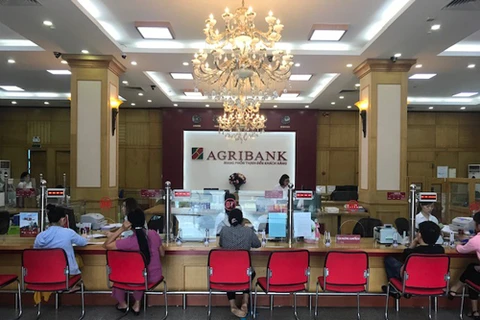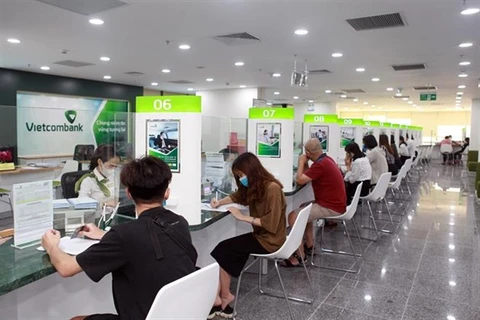 Customers make transactions at an Agribank’s office. Agribank had 939 branches nationwide by the end of last year. (Photo: topbank.vn)
Customers make transactions at an Agribank’s office. Agribank had 939 branches nationwide by the end of last year. (Photo: topbank.vn) According to banks’ financial reports, State-owned Agribank has topped the list of network coverage with 939 branches nationwide by the end of last year. It was followed by three other State-owned banks: BIDV with 189 branches, Vietinbank with 155 branches, and Vietcombank with 121 branches.
In the group of private banks, Sacombank has led with 109 branches while MB and LienVietPostBank have come second and third with 99 and 76 branches, respectively. Sacombank has gained the position after it merged with Southern Bank which had more than 160 branches and transaction offices.
In terms of growth in network coverage, TP Bank gained the highest growth rate of 35.9 percent last year. The bank had 53 branches by the end of last year, up 14 branches against the end of 2020.
Other banks, which last year opened an additional one to five branches against the end of 2020, are Vietcombank and HDBank (five branches); VPBank (four branches); Viet Capital Bank (three branches); OCB (two branches); Bac A Bank and Nam A Bank (one branch each).
According to current regulations, besides earning profits, complying with the central bank's regulations on operational safety, and having non-performing loans of fewer than 3 percent of total outstanding loans, the minimum capital requirement for opening a new branch and transaction office in Hanoi and Ho Chi Minh City is 300 billion VND (13.3 million USD), and 50 billion VND in other cities and provinces.
Previously, banks had often tried to enlarge their network of branches and transaction offices rapidly in an effort to increase brand coverage and market share. However, they then saw the rampant opening of new branches and transaction offices was ineffective. It was reported operating costs of banks increased significantly due to the enlargement while the effectiveness of many new transaction offices, especially in rural areas, was often not as expected.
According to Do Thai Binh, head of VIB’s Corporate and Institution Banking Division, many banks realised the enlargement has been ineffective and they, therefore, have decided to focus on digital banking instead of opening more branches and transaction offices in recent years.
The digital transformation for banks is now a must. Currently, the ratio of customers who open online bank accounts, is increasing rapidly and the rate is even a majority at some banks. Many banks have been also using electronic Know Your Customer (eKYC) and the app has almost replaced a bank branch, according to Binh./.
VNA























